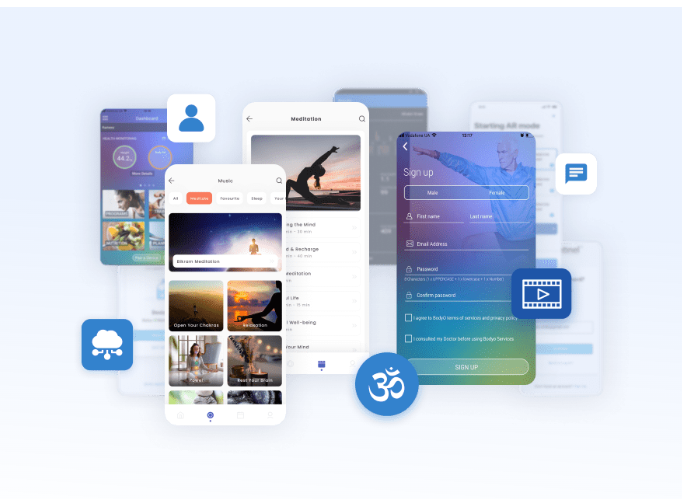Introduction
In today's fast-paced world, stress and anxiety have become prevalent issues affecting millions worldwide. However, with the rise of technology, we have also witnessed a surge in mindfulness practices. Meditation, once confined to spiritual circles, has now become mainstream, thanks to meditation apps. These apps offer users convenience, accessibility, and guidance in their journey towards mental well-being.
Understanding the Need for Meditation Apps
The hectic pace of modern life often leaves individuals with little time for self-care. Amidst work deadlines, family responsibilities, and social obligations, finding moments for relaxation and introspection can be challenging. This is where meditation apps come in, serving as portable sanctuaries that users can access anytime, anywhere.
Key Features of a Successful Meditation App
Personalization
One of the crucial aspects of a meditation app is its ability to cater to individual needs. Personalization features such as guided meditations tailored to specific goals (stress relief, better sleep, increased focus) enhance user engagement and satisfaction.
Variety of Practices
Offering a diverse range of meditation practices ensures that users can find techniques that resonate with them. From mindfulness meditation and body scans to loving-kindness meditation and breathwork, providing variety keeps users engaged and encourages exploration.
Progress Tracking
Tracking progress is essential for maintaining motivation and accountability. Incorporating features that allow users to monitor their meditation habits, set goals, and track their journey can significantly enhance the user experience.
Community Support
Creating a sense of community within the app fosters connection and support among users. Features such as group challenges, forums, and guided sessions led by renowned meditation teachers help users feel part of a larger community, thereby increasing engagement and retention.
Development Process
Research and Planning
Before embarking on the development journey, thorough research is essential to understand the target audience, their pain points, and preferences. Conducting market research, competitor analysis, and user surveys can provide valuable insights that shape the app's features and design.
Design and Prototyping
A user-friendly interface is paramount for the success of a meditation app. Collaborating with experienced UX/UI designers to create intuitive designs and conducting usability testing to refine the user experience ensures that the app meets the needs of its target audience.
Development and Testing
The development phase involves translating the design into a functional meditation app. Leveraging agile development methodologies allows for iterative improvements and faster time-to-market. Rigorous testing at each stage ensures the app's stability, security, and performance.
Launch and Marketing
A successful launch requires a well-thought-out marketing strategy. Leveraging social media, influencer partnerships, app store optimization (ASO), and content marketing can help generate buzz and attract users to the app.
Monetization Strategies
Freemium Model
Many meditation apps adopt a freemium model, offering basic features for free while charging for premium content and advanced features. This allows users to experience the app's value before committing to a subscription.
Subscription-Based Model
Subscription-based models provide users with access to a wide range of features and content for a recurring fee. Offering tiered subscription plans with varying levels of access ensures flexibility and caters to different budgets.
In-App Purchases
In-app purchases such as guided meditation packs, exclusive content, and merchandise can serve as additional revenue streams for meditation apps.
Conclusion
In conclusion, developing a successful meditation app development requires a deep understanding of user needs, thoughtful design, robust development, and effective marketing strategies. By incorporating key features such as personalization, variety of practices, progress tracking, and community support, meditation apps can empower users on their journey towards mental well-being.
